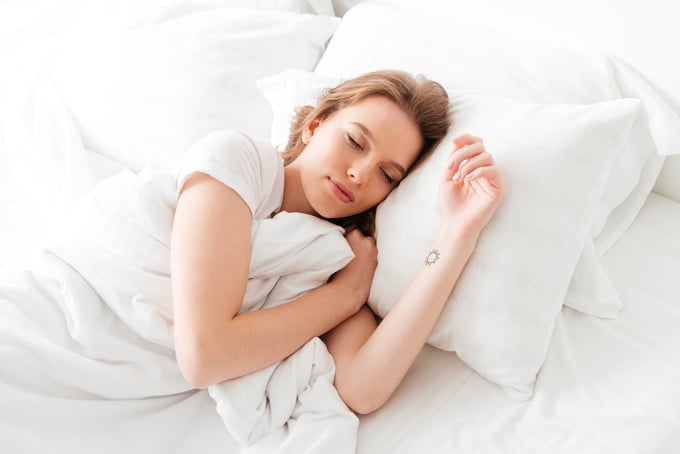Experts say sleeping in or lingering in bed in the morning can disrupt your circadian rhythm, affecting your nighttime sleep.
According to experts, the biological clock and the way each person wakes up in the morning shape their nighttime sleeping habits.
“The circadian rhythm operates on a 24-hour cycle that determines how alert you are and when you feel sleepy. It is largely influenced by light,” says Chester Wu, MD, a psychiatrist and sleep specialist.
One common morning habit that can negatively impact your nighttime sleep and circadian rhythm is staying in bed, he says. He says delaying the start of the day often leaves people feeling lazy and lethargic.
“I never stay in bed doing non-sleep activities. When I wake up, I get out of bed immediately and go somewhere around the house,” says Chelsie Rohrscheib, a neurologist and sleep expert.
This helps maintain a feeling in the brain that the bedroom is just a place to rest, thereby improving the quality of sleep.
Exposure to light during the day is important, says Dr Chris Winter, a neuroscientist and sleep hygiene expert. Light effectively suppresses the production of melatonin in the brain, which tells the body that a new day has begun.

Waking up habits can affect your night's sleep. Photo: Freepik
Getting out of bed as soon as you wake up reduces the urge to fall back asleep, even on days off, says Carleara Weiss, a visiting professor at the University at Buffalo.
"A regular sleep-wake schedule helps the body's biological clock regulate physiological functions, in addition to sleep. Sleeping in on weekends leads to social jet lag, which causes difficulty concentrating, fatigue, and headaches," she explains.
Dr. Raj Dasgupta, a pulmonologist and critical care physician, offers a similar warning. Social jet lag, which comes from sleeping in, can affect your ability to fall asleep at night.
His morning routine after waking up is to get about 30 minutes of sunlight by going outside or standing by a window. He explains that daylight is important, helping to regulate each person's circadian rhythm. Previous studies have also shown that lack of exposure to natural light can reduce sleep quality, contribute to insomnia and negatively impact mood.
Thuc Linh (According to NY Post )
Source link





























![[Photo] National Assembly Chairman attends the seminar "Building and operating an international financial center and recommendations for Vietnam"](https://vphoto.vietnam.vn/thumb/1200x675/vietnam/resource/IMAGE/2025/7/28/76393436936e457db31ec84433289f72)







































































Comment (0)